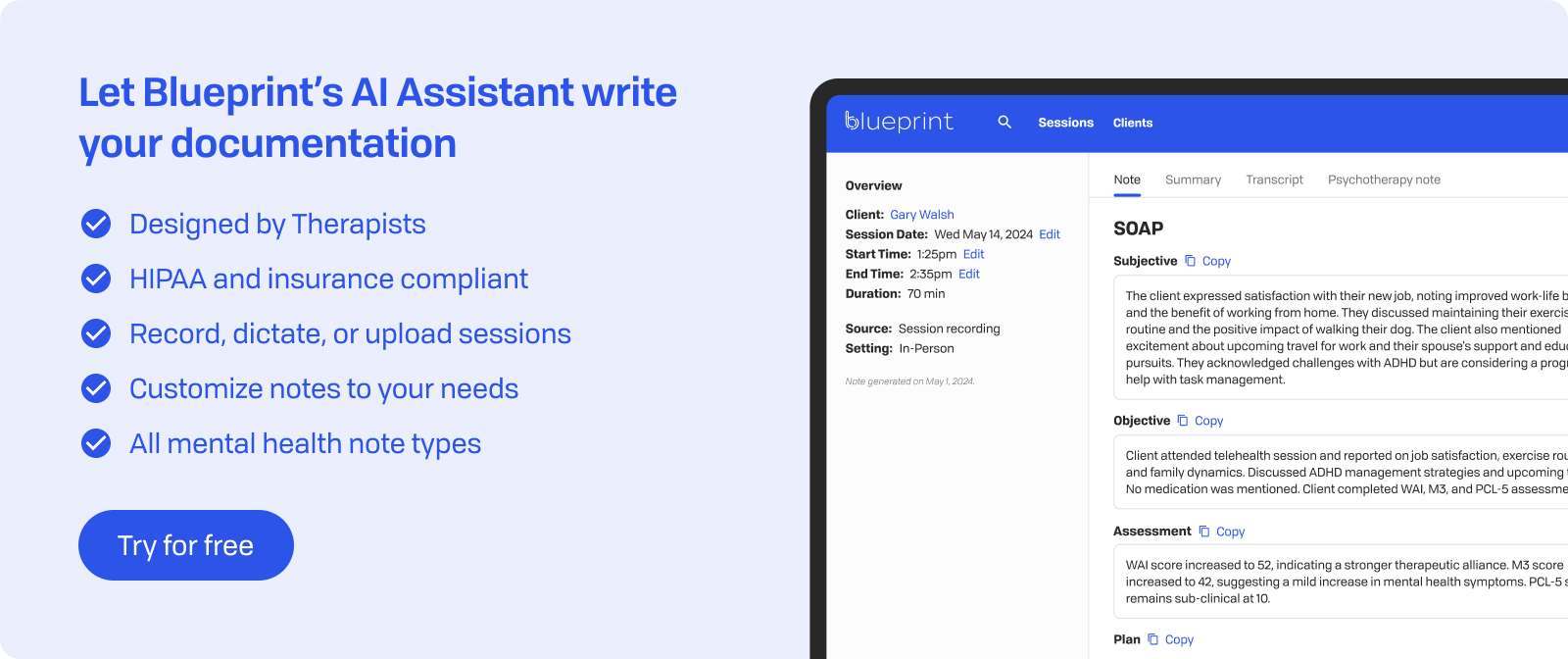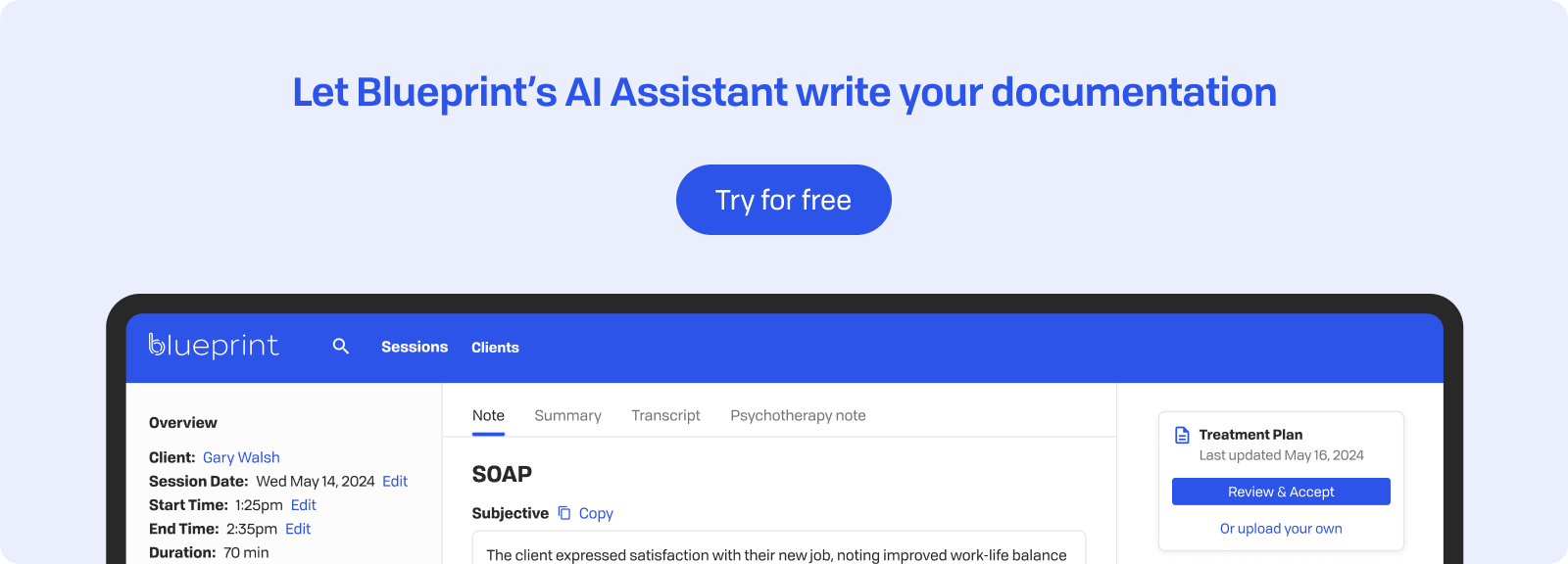
In Brief
As mental health professionals, the seemingly simple act of writing an excuse letter for a student can quickly become a complex balancing act. We navigate a delicate tightrope between championing our young clients' mental health and ensuring we uphold rigorous professional boundaries and ethical standards. When parents request documentation for absences or school administrators seek verification of therapy appointments, our role demands careful consideration to ensure support never veers into overreach.
Managing these requests means navigating different relationships and systems. Schools have attendance policies, parents worry about academic performance, and students need support for their mental health. Finding the right balance involves knowing when a therapist's input helps and when it might cross professional boundaries.
Legal requirements, confidentiality constraints, and the impact on the therapeutic relationship add complexity. Each excuse letter reflects a decision where clinical judgment, ethical guidelines, and practical considerations meet. Grasping these subtleties ensures that any documentation truly benefits the student.
The Therapist's Role in Writing Excuse Letters
As mental health professionals, we sometimes need to provide documentation to excuse students from school activities or attendance. This responsibility involves careful thought about when such letters make sense. The decision to write an excuse letter should always focus on the student's mental health needs and therapeutic goals.
Common reasons for excuse letters include acute mental health crises that need immediate care. If a student faces severe anxiety, depression, or other conditions that make school attendance harmful or impossible, documentation may be necessary. Such situations often involve symptoms that make classroom participation difficult for the student's wellbeing.
Therapy-related absences also justify excuse letters. Regular therapy sessions during school hours may be necessary for a student's treatment plan. In these cases, the letter confirms the medical need for missing class time for mental health treatment.
Recovery periods from trauma or severe burnout might also need documentation. Students dealing with significant life events, grief, or overwhelming stress may require temporary accommodations. The therapist's role involves assessing if school attendance would hinder recovery or worsen symptoms.
Ethical considerations must guide every decision to write an excuse letter. We should avoid enabling avoidance behaviors or inadvertently supporting school refusal patterns. The letter should address genuine therapeutic needs rather than just accommodating what a student or parent prefers.
Professional boundaries require careful attention when communicating with schools. While we can confirm that a student is under our care and needs certain accommodations, we must protect confidentiality. Excuse letters should include only the necessary information to serve their purpose.
Our practice scope also limits what we can document. We cannot make educational recommendations or diagnose learning disabilities outside our expertise. Our letters should focus solely on mental health-related needs and their impact on school attendance or participation.

Legal and Ethical Boundaries
Understanding the legal landscape when writing excuse letters involves knowing which privacy laws apply to your practice setting. HIPAA governs most private practice and healthcare settings, while FERPA typically applies to therapists working within public educational institutions. Both laws strictly regulate what information you can share without explicit consent.
Before writing any excuse letter, obtain written consent from the client or their legal guardian. This consent should specify:
- What information can be disclosed: General attendance verification versus specific mental health details
- Who will receive the information: School administrators, teachers, or attendance office
- The time period covered: Specific dates or ongoing authorization
- Purpose of disclosure: Excusing absences versus requesting accommodations
When crafting excuse letters, you can share certain information without breaching confidentiality:
- Permitted disclosures: "Under my care for health-related reasons," "medical appointments," or "health condition requiring absence"
- Avoid specifics: Never include diagnoses, symptoms, medication details, or treatment specifics unless explicitly authorized
- Professional verification: Your name, credentials, and confirmation of treatment relationship
- Time frames: Dates of appointments or recommended absence periods
Even with consent, share only the minimum information necessary. Schools need to know that absences are legitimate and health-related, not the intimate details of a student's mental health journey. If pressed for more information, refer back to your consent form limitations and offer to discuss what additional permissions might be needed. This approach protects your client's privacy while meeting the school's documentation requirements.
Elements of an Effective Excuse Letter
A well-crafted excuse letter acts as a professional link between your therapeutic practice and the educational institution. Each part has a specific role in maintaining clarity, professionalism, and appropriate boundaries.
Key Header Information:
- Your professional identity: Include your full name, relevant degrees (Ph.D., LCSW, LPC), and license number.
- Practice contact details: Office address, phone number, and professional email.
- Date of letter: Always use the current date when writing.
- Recipient information: "To Whom It May Concern" or the specific administrator's name if known.
Core Content Structure:
- Clear date specification: State exact dates of absence ("January 15-17, 2025") rather than vague timeframes.
- Professional reason statement: Use phrases like "due to medical reasons" or "for health-related appointments" without elaborating.
- Verification of care: Confirm the student is "currently under my professional care" without revealing treatment details.
- Return advocacy: Include supportive language about the student's readiness to resume academic activities when appropriate.
Language Considerations:
- Avoid diagnostic terminology: Never include specific diagnoses, symptoms, or treatment modalities unless you have explicit written consent.
- Maintain neutral tone: Use professional, factual language without emotional appeals or excessive detail.
- Keep it concise: Three to four sentences typically suffice for the body content.
Closing Elements:
- Availability statement: "Please contact me if additional verification is needed."
- Professional signature: Hand-signed with printed name and credentials below.
- Consent reminder: Consider adding "This information is shared with client/guardian consent."

Sample Excuse Letter for Students
Here's a professional template that balances clarity with confidentiality:
[Your Name], [Credentials]
[Practice Name]
[Address]
[Phone] | [Email]
[Date]
To Whom It May Concern,
I am writing on behalf of [Student Name], who is under my care for mental health support. Due to health-related reasons, [he/she/they] were unable to attend school from [date] to [date].
I recommend excusing these absences and allowing any appropriate academic accommodations during this time.
Please feel free to contact me if further verification is needed (with the student's consent).
Sincerely,
[Your Signature]
[Your Name], [Degree, License]
[License Number]
Key elements that make this template effective:
- Professional header: Establishes credibility immediately with your full credentials and contact information
- Neutral language: "Health-related reasons" protects privacy while confirming legitimate need
- Clear timeframe: Specific dates eliminate ambiguity about the absence period
- Accommodation mention: Opens dialogue for necessary support without overstepping
- Consent reminder: Shows awareness of privacy requirements
Variations you might consider:
- For ongoing appointments: "...will need to attend regular appointments on [day] from [time] to [time] for the foreseeable future"
- For partial day absences: "...needs to arrive late/leave early on [specific days] for medical appointments"
- For extended recovery: "...requires modified attendance through [date] as part of their treatment plan"
Remember to keep copies of all letters issued and document them in your client files. This template provides the important information schools need while maintaining appropriate professional boundaries.

Working With Parents, Schools, and Guardians
Collaborating effectively with parents, schools, and guardians starts with clear communication strategies. Setting expectations early helps prevent misunderstandings and ensures everyone knows your role in supporting the student's mental health needs.
Communication best practices include:
- Set boundaries early: Clarify your availability, preferred contact methods, and response times with both parents and school staff.
- Use inclusive language: Frame discussions with "we" statements to emphasize shared goals for the student's wellbeing.
- Create group communication channels: Consider using group emails that include parents, teachers, and relevant support staff to maintain transparency.
- Document all interactions: Keep detailed records of communications regarding excuse letters and accommodations.
Handling dual consent with minors adds complexity to excuse letter requests. In most states, both the minor client and their legal guardian must agree to information disclosure. This situation becomes particularly delicate when:
- Parents request letters without the student's knowledge: Discuss the request with your minor client first when appropriate for their age and understanding.
- Student and parent goals conflict: Focus on therapeutic needs while respecting both perspectives.
- Multiple guardians disagree: Require consensus before proceeding with documentation.
Maintaining therapeutic neutrality while advocating for students requires careful balance. Your primary responsibility is to your client's therapeutic needs, not school attendance requirements or parental preferences. When pressured to provide specific information or recommendations beyond your scope:
- Redirect to your role: "I can verify attendance at appointments but cannot make educational recommendations."
- Offer alternatives: Suggest appropriate referrals for educational assessments or accommodations.
- Maintain professional boundaries: Avoid taking sides in school-family disputes while supporting your client's legitimate needs.
When Not to Write an Excuse Letter
Knowing when to say no to a request for documentation is important for both your professional integrity and your client's therapeutic progress. Certain situations clearly indicate that writing an excuse letter would be clinically inappropriate or ethically problematic.
Red flags that suggest you should not write an excuse letter:
- Pattern of avoidance: The student frequently seeks documentation to skip tests, presentations, or challenging situations without legitimate mental health reasons
- Contradictory observations: Your clinical notes reflect improvement and readiness for school participation, but the family requests documentation for extended absence
- Manipulation attempts: Parents or students pressure you to exaggerate symptoms or misrepresent the therapeutic need for an absence
- Lack of therapeutic relationship: Requests for letters come after minimal contact or before establishing proper assessment and treatment
- Outside your expertise: You are asked to comment on learning disabilities, physical health conditions, or educational needs beyond mental health
When declining a request, remain professional while clearly stating your boundaries. You might say: "I understand your concern about [student's] attendance. Based on my clinical assessment, I cannot provide documentation for extended absences at this time. Let's discuss other ways to support [student's] success at school."
For persistent parents, offer alternatives: "While I can't write an excuse letter for this situation, I can provide a general verification of treatment dates" or "I'd be happy to participate in a school meeting to discuss appropriate mental health accommodations."
Document all requests and your responses in clinical notes. This protects you legally and provides a clear record of your clinical reasoning and ethical decision-making process.

Documentation and Record-Keeping
Keeping detailed records of excuse letters protects both you and your client while ensuring continuity of care. Every letter issued becomes part of the clinical record and may be subject to future review.
Best practices for noting letter issuance in client files:
- Document the request: Record who made the request, when, and for what reason.
- Clinical rationale: Note your reasoning for approving or denying the request.
- Content summary: Include a brief description of the information disclosed.
- Consent verification: Document that you obtained proper consent before writing.
- Follow-up notes: Record any responses from the school or subsequent discussions.
Always retain a copy of every letter issued. Store these copies in the client's file, either physically or electronically, following your practice's standard documentation procedures. Consider creating a separate subfolder specifically for external correspondence to maintain organization.
Considerations for potential audit or legal review:
- Consistency checks: Ensure excuse letters align with session notes and treatment plans.
- Timeline accuracy: Verify dates in letters match actual appointment records.
- Disclosure tracking: Maintain a log of all information shared with third parties.
- Appeal preparation: Keep detailed records in case schools challenge accommodations or families pursue disability claims.
Remember that excuse letters may be requested years later for disability determinations, IEP meetings, or legal proceedings. Clear documentation now prevents confusion and protects your professional reputation later. Your records should tell a coherent story about the client's needs, your clinical decisions, and the reasoning behind any accommodations requested.
Key Takeaways
Writing excuse letters for students involves balancing clinical practice with educational support. As a therapist, you advocate for legitimate mental health needs while maintaining professional boundaries and ethical standards.
Important practices for excuse letter documentation:
- Obtain written consent first: Secure permission from both the client and guardian (when applicable) before sharing information with schools.
- Use standardized templates: Consistent formatting minimizes errors and ensures all necessary elements are included.
- Maintain minimal disclosure: Share only what's necessary—typically just verification of care and dates of absence.
- Keep detailed records: Document all requests, your clinical reasoning, and copies of letters issued.
Professional boundaries to remember:
- Limit scope to mental health: Do not comment on educational needs or physical health conditions.
- Resist pressure for details: Schools don't need diagnoses or treatment specifics to excuse absences.
- Decline inappropriate requests: Recognize when documentation might enable avoidance or contradict clinical observations.
Staying informed about local regulations is important. School policies vary by district, and state laws differ regarding consent requirements for minors. Regularly reviewing your area's educational policies and privacy laws ensures your documentation practices remain compliant.
The excuse letter acts as a professional bridge between therapeutic care and educational requirements. When done correctly, these letters support student well-being without compromising confidentiality or therapeutic progress. Your careful approach to documentation requests ultimately serves your client's best interests while protecting your professional integrity.

How Blueprint can help streamline your workflow
Blueprint is a HIPAA-compliant AI Assistant built with therapists, for the way therapists work. Trusted by over 50,000 clinicians, Blueprint automates progress notes, drafts smart treatment plans, and surfaces actionable insights before, during, and after every client session. That means saving about 5-10 hours each week — so you have more time to focus on what matters most to you.
Try your first five sessions of Blueprint for free. No credit card required, with a 60-day money-back guarantee.























